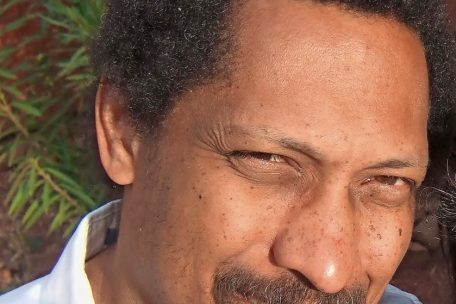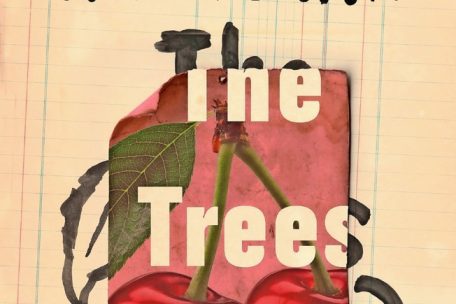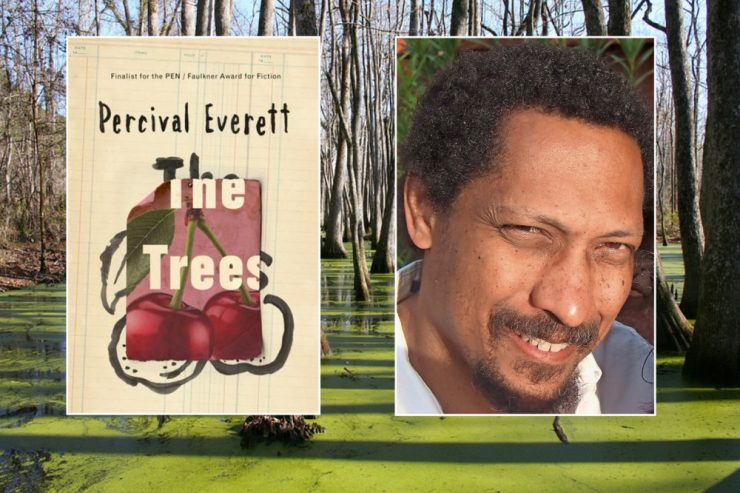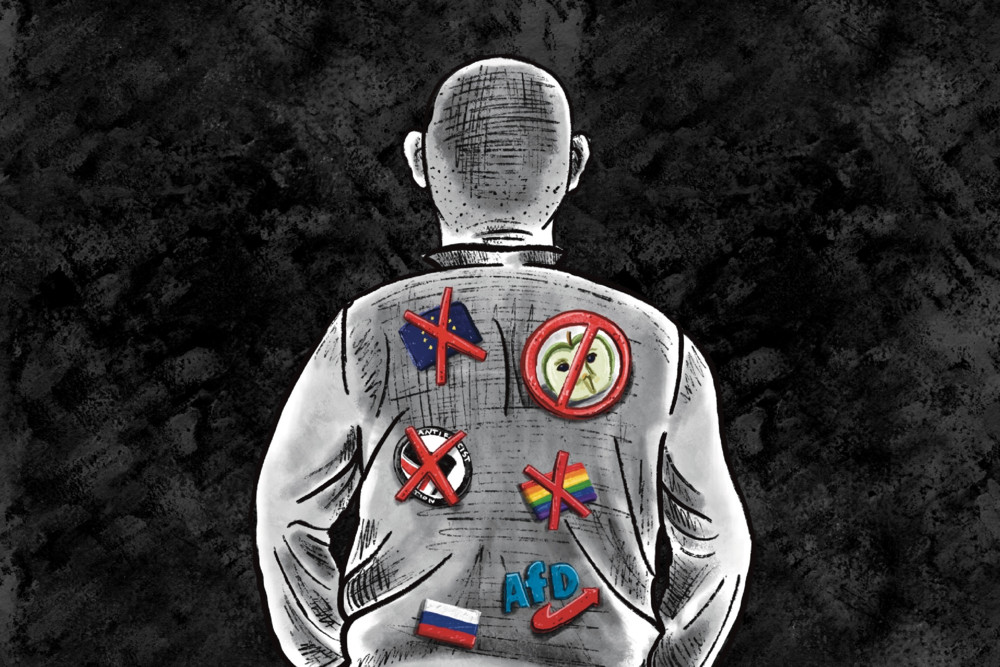
„Money, Mississippi, looks exactly like it sounds. Named in that persistent Southern tradition of irony and with the attendant tradition of nescience, the name becomes slightly sad, a marker of self-conscious ignorance that might as well be embraced because let’s face it, it isn’t going away.”
As Percival Everett further zones in on this run-down deserted American town inhabited by a bunch of racist hillbillies and uneducated, Trump-cap-wearing rednecks, we meet a charming family tribe ruled by matriarch Granny C and the likes of Wheat Bryant, a man „constantly, ever, always between jobs” – to worsen the case, his wife Charlene is always „quick to point out that the word between usually suggested something at either end, two somethings, or destinations, and that Wheat had held only one job in his whole life, so he wasn’t between anything”.
While this may sound like a Southern take on the likes of „Fargo”, with Everett deriving obvious pleasure from deconstructing the American myth by paving his storyline with characters whose dumbness is utterly hilarious, things quickly take a much darker turn as the dead bodies of said rednecks start to pile up, the series of incongruous murders starting off with Sheriff Delroy Digby discovering the disfigured, blood-smeared body of Junior Junior, a member of the tribe.
Next to Junior Junior – a perfect example of how onomastics can say almost everything there needs to be said about a fictional character – lies the body of a dead Black man whose face is „horribly beaten“, whose neck is scarred and „seemingly stitched together”, and who seems to be holding the testicles of the emasculated Junior Junior. While this is a particularly unsettling crime scene, things get worse: First, the corpse of the Black man disappears, then it reappears on the site of a second crime, where the police also find the deformed body of Wheat.
With superstition being a loyal companion to stupidity, local rednecks start disseminating the rumour of a Black ghost on a murderous mission, while past traumata slowly unfold under the sharp gaze of suspicious yet incredibly laid-back Jim and Ed, two Black detectives from the Mississippi Bureau of Investigation who are investigating while being confronted with the hateful stares of a small community who’s still very much accustomed to use the n-word and whose members are either discreet xenophobes or very proud racists: „It was a long-running joke in Money, Mississippi, that the way to discover who belonged to the Klan was to wait at Russell’s Dry Cleaning and Laundry.“ Jim’s verdict on local townspeople is as harsh as it is correct: „It’s a chock-full of know-nothing peckerwoods stuck in the prewar nineteenth century and living proof that inbreeding doesn’t lead to extinction.”
Both detectives quickly find out that the tribe was involved in the killing of Emmett Till, who got lynched after a young woman – who turns out to be none other than the then-young Granny C – accused him of having made lewd remarks. It also turns out that Money, Mississippi, despite its name sounding like something only a writer could come up with, is as real as the murder of said Emmett Till. As the assassinations multiply all over the State of Mississippi and beyond, Black FBI Special Agent Herberta Hind joins the duo and the investigation takes a different turn when local root doctor Mama Z appears, who has been documenting every lynching ever committed in the USA in a meticulously assembled library of horrors.
„If you want to know a place, you talk to its history”

Efficiently weaving the lasting effects of historical traumata on contemporary America in a compelling narrative made up by different paragenres, with the angry mob roaming about like a horde of zombies on a killing spree, disappearing bodies and gruesome murders, „The Trees“ combines an insanely funny Neo-noir pastiche with a Jordan-Peele-like take on horror movies – the horror being, as in Peele’s movies, a very clever way of using genre to portray the dark subconscious of American history – and in the end, the return of the repressed expresses itself in a bloodshed that is as frightening as it is cathartic.
Throughout his narrative, Everett lays bare the mundane racism that has partly replaced the more visible forms of hate in a retrograde America, overtly suggesting that things and mentalities haven’t evolved that much. Thus Mama Z says she considers „police shootings as lynchings“, reminding us of the brutal murder of George Floyd. Elsewhere, Special Agent Hind talks about the importance of having Black people in places like FBI, CIA or Congress so as to not let the Whites have all the power – an argument that Mama Z laconically rejects with: „I don’t keep bad company.”
Jim and Ed try to dismantle racist reactions with either indifference or humour – when a White deputy gives them „as hard a look as he could manage“, both consider this to be „such a cliché“ that they „looked at each other and laughed“. And when the local branch of KKK realizes they „used to have cross burnings a lot more and family picnics and softball games” and want to set an example with a very amateurish cross burning, Jim actually confuses their activities with a burning car, specifying in the deadpan way the reader quickly grows accustomed to, that he „forgot to be scared“.
At some point, even Donald Trump turns into a fictional character, gives a speech and, thinking his live stream got interrupted, shares his „thoughts” unfiltered: „I almost had those assholes out there believing I didn’t say nigger. Ha ha ha. I am the best. I could sell ice to Eskimos. Hell, I could sell rope to a nigger. What? We’re back. I didn’t say what you think you just heard me say.”
Info
„The Trees“ by Percival Everett, 2022 Influx Press, 344 pages, 9,99 £
Despite all this outrageously comical scenes – humour being indeed a strong weapon against ignorance –, the second half of „The Trees” becomes a gloomy affair, first because, the more racism and stupidity accumulates, the less fun one derives from laughing at the idiocy of these characters; secondly, because this all stops being a big load of fun from the moment the reader gets confronted with Mama Z’s archives, the longest chapter of the novel being made of a list of all the names (and the unnamed bodies) of Black people that were lynched without there ever being a trial. „Everybody talks about genocides around the world, but when the killing is slow and spreads over a hundred years, no one notices. Where there are no mass graves, no one notices. American outrage is always for show.“
To give you a hint at how dark „The Trees“ pens out towards its ending: If you remember Jordan Prentice’s midget on ketamine in „In Bruges“, Irish playwright Martin McDonagh’s laughably brilliant movie debut, you most certainly recall the moment he announces, during the evening he spends doing quite an impressive amount of cocaine with Colin Farrell and Brendan Gleeson’s characters as well as a nameless hooker, that there will be a war opposing all the Blacks and all the Whites. Well, subtract the hooker, the Hollywood actors (although „The Trees“ can almost be read as a – brilliant – scenario and should definitely be adapted for the screen), the drugs and, well, the midget, and you’re left with an idea that, while Colin Farrell’s character considers it racist as well as dumb, writer Percy Everett starts taking it very seriously towards the last part of his novel.
„The Trees” starts off as funny as „Fargo” (the reference to the Coen Brother’s dumb characters are all over the place – one chapter even takes the reader for yet another murder to Duluth) – and ends as suffocating and dark as a post-apocalyptical movie, with the only light at its core being the deadpan humour and the friendship between the main characters Jim and Ed, who’ll remind you of John Travolta’s Vincent Vega and Samuel L. Jackson’s Jules Winnfield – except, well, Everett saw no need in putting an interesting White character in his book (and sure enough, you can find plenty of those in almost every other novel).
„The Trees“ is a hell of a book in every sense of the word. It is an incredibly funny ride through a very American hell, paved with dead bodies, hatred and revenge. It basically does everything Spike Lee wished he’d done in his „BlacKkKlansman“ if he had had the balls (pun not intended) to go a little less for entertainment and a little more for vendetta.

 Zu Demaart
Zu Demaart








Sie müssen angemeldet sein um kommentieren zu können